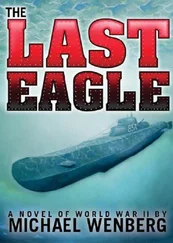Michael Crichton - The Lost World
Здесь есть возможность читать онлайн «Michael Crichton - The Lost World» весь текст электронной книги совершенно бесплатно (целиком полную версию без сокращений). В некоторых случаях можно слушать аудио, скачать через торрент в формате fb2 и присутствует краткое содержание. Жанр: Детская проза, на английском языке. Описание произведения, (предисловие) а так же отзывы посетителей доступны на портале библиотеки ЛибКат.
- Название:The Lost World
- Автор:
- Жанр:
- Год:неизвестен
- ISBN:нет данных
- Рейтинг книги:5 / 5. Голосов: 1
-
Избранное:Добавить в избранное
- Отзывы:
-
Ваша оценка:
- 100
- 1
- 2
- 3
- 4
- 5
The Lost World: краткое содержание, описание и аннотация
Предлагаем к чтению аннотацию, описание, краткое содержание или предисловие (зависит от того, что написал сам автор книги «The Lost World»). Если вы не нашли необходимую информацию о книге — напишите в комментариях, мы постараемся отыскать её.
The Lost World — читать онлайн бесплатно полную книгу (весь текст) целиком
Ниже представлен текст книги, разбитый по страницам. Система сохранения места последней прочитанной страницы, позволяет с удобством читать онлайн бесплатно книгу «The Lost World», без необходимости каждый раз заново искать на чём Вы остановились. Поставьте закладку, и сможете в любой момент перейти на страницу, на которой закончили чтение.
Интервал:
Закладка:
"Thank you," Thorne said. He tucked the papers in his pocket, ducked his head against the rain, and ran back out on the runway.
Three miles offshore, the helicopters broke through the coastal cloud layer, into early-morning sunlight. From the cockpit of the lead Huey, Thorne could look up and down the coast. He saw five islands at various distances offshore - harsh rocky pinnacles, rising out of rough blue sea. The islands were each several miles apart, undoubtedly part of an old volcanic chain.
He pressed the speaker button. "Which is Sorna?"
The pilot pointed ahead. "We call them the Five Deaths," he said. "Isla Muerte, Isla Matanceros, Isla Pena, Isla Tacano, and Isla Sorna, which is the big one farthest north,"
"Have you been there?"
"Never, senor. But I believe there will be a landing site."
"How do you know?"
"Some years ago, there were some flights there. I have heard the Americans would come, and fly there, sometimes."
"Not Germans?"
"No, no. There have been no Germans since…I do not know. The World War. They were Americans that came."
"When was that?"
"I am not sure. Perhaps ten years ago."
The helicopter turned north, passing over the nearest island. Thorne glimpsed rugged, volcanic terrain, overgrown with dense jungle. There was no sign of life, or of human habitation.
"To the local people, these islands are not happy places," the pilot said. "They say, no good comes from here." He smiled. "But they do not know. They are superstitious Indians."
Now they were over open water, with Isla Sorna directly ahead. It was clearly an old volcanic crater: bare, reddish-gray rock walls, an eroded cone.
"Where do the boats land?"
The pilot pointed to where the sea surged and crashed against the cliffs. "On the east side of this island, there are many caves, made by the waves. Some of the local people call this Isla Gemido. It means 'groan', from the sound of the waves inside the caves. Some of the caves go all the way through to the interior, and a boat can pass through at certain times. But not in weather as you see it now."
Thorne thought of Sarah Harding. If she was coming, she would land later today. "I have a colleague who may be arriving this afternoon said. "Can you bring her out?"
"I am sorry the pilot said. "We have a job in Golfo Juan. We will not be back until tonight."
"What can she do?"
The pilot squinted at the sea, "Perhaps she can come by boat. The sea changes by the hour. She might have luck."
"And you will come back for us tomorrow?"
"Yes, Senor Thorne. We will come in the early morning. It is the best time, for the winds."
The helicopter approached from the west, rising several hundred feet, moving over the rocky cliffs to reveal the interior of Isla Gemido. It appeared just like the others: volcanic ridges and ravines, heavily overgrown with dense jungle. It was beautiful from the air, but Thorne knew it would be dauntingly difficult to move through that terrain. He stared down, looking for roads.
The helicopter thumped lower, circling the central area of the island. Thorne saw no buildings, no roads. The helicopter descended toward the jungle. The pilot said, "Because of the cliffs, the winds here are very bad. Many gusts and updrafts. There is only one place on the island where it is safe to land." He peered out the window. "Ah. Yes. There."
Thorne saw an open clearing, overgrown with tall grass.
"We land there," the pilot said.
Isla Sorna
Eddie Carr stood in the tail grass of the clearing, turned away from the flying dust as the two helicopters lifted off the ground and rose into the sky. In a few moments they were small specks, their sound fading. Eddie shaded his eyes as he looked upward. In a forlorn voice he said, "When're they coming back?"
"Tomorrow morning," Thorne said. "We'll have found Levine by then."
"At least, we'd better," Malcolm said.
And then the helicopters were gone, disappearing over the high rim of the crater. Carr stood with Thorne and Malcolm in the clearing, enveloped in morning heat, and deep silence on the island.
"Kind of creepy here," Eddie said, pulling his baseball cap down lower over his eyes.
Eddie Carr was twenty-four years old, raised in Daly City. Physically, he was dark-haired, compact and strong. His body was thick, the muscles bunched, but his hands were elegant, the fingers long and tapered. Eddie had a talent - Thorne would have said, a genius - for mechanical things. Eddie could build anything, and fix anything. He could see how things worked, just by looking at them. Thorne had hired him three years earlier, his first job out of community college. It was supposed to be a temporary job, earning money so he could go back to school and get an advanced degree. But Thorne had long since become dependent on Eddie. And Eddie, for his part, wasn't much interested in going back to the books.
At the same time, he hadn't counted on anything like this, he thought, looking around him at the clearing. Eddie was an urban kid, accustomed to the action of the city, the honk of horns and the rush of traffic. This desolate silence made him uneasy.
"Come on," Thorne said, putting a hand on his shoulder, "let's get started." They turned to the cargo containers, left by the helicopter. They were sitting a few yards away, in the tall grass.
"Can I help?" Malcolm said, a few yards away.
"If you don't mind, no," Eddie said. "We'd better unpack these ourselves."
They spent half an hour unbolting the rear panels, lowering them to the ground, and entering the containers. After that, they took only a few minutes to release the vehicles. Eddie got behind the wheel of the Explorer and flicked on the ignition. There was hardly any sound, just a soft whirr of the vacuum pump starting up. Thorne said, "How's your charge?"
"Full," Eddie said.
"Batteries okay?"
"Yeah. Seem fine."
Eddie was relieved. He had supervised the conversion of these vehicles to electric power, but it was a rush job, and they hadn't had time to test them thoroughly afterward. And though it was true that electric cars employed less complex technology than the internal-combustion engine-that chugging relic of the nineteenth century - Eddie knew that taking untested equipment into the field was always risky.
Especially when that equipment also used the latest technology. That fact troubled Eddie more than he was willing to admit. Like most born mechanics, he was deeply conservative. He liked things to work - work, no matter what - and to him that meant using established, proven technology. Unfortunately, he had been voted down this time.
Eddie had two particular areas of concern. One was the black photovoltaic panels, with their rows of octagonal silicon wafers, mounted on the roof and hood of the vehicles. These panels were efficient, and much less fragile than the old photovoltaics. Eddie had mounted them with special vibration-damping units of his own design. But the fact remained, if the panels were injured in any way, they would no longer be able to charge the vehicles, or run the electronics. All their systems would stop dead.
His other concern was the batteries themselves. Thorne had selected the new lithium-ion batteries from Nissan, which were extremely efficient on a weight basis. But they were still experimental, which to Eddie was just a polite word for "unreliable."
Eddie had argued for backups; he had argued for a little gasoline generator, just in case; he had argued for lots of things. And he had always been voted down. Under the circumstances, Eddie did the only sensible thing: he built in a few extras, and didn't tell anybody about it.
He was pretty sure Thorne knew he had done that. But Thorne never said anything. And Eddie never brought it up. But now that he was here, on this island in the middle of nowhere, he was glad he had. Because the fact was, you never knew.
Читать дальшеИнтервал:
Закладка:
Похожие книги на «The Lost World»
Представляем Вашему вниманию похожие книги на «The Lost World» списком для выбора. Мы отобрали схожую по названию и смыслу литературу в надежде предоставить читателям больше вариантов отыскать новые, интересные, ещё непрочитанные произведения.
Обсуждение, отзывы о книге «The Lost World» и просто собственные мнения читателей. Оставьте ваши комментарии, напишите, что Вы думаете о произведении, его смысле или главных героях. Укажите что конкретно понравилось, а что нет, и почему Вы так считаете.









